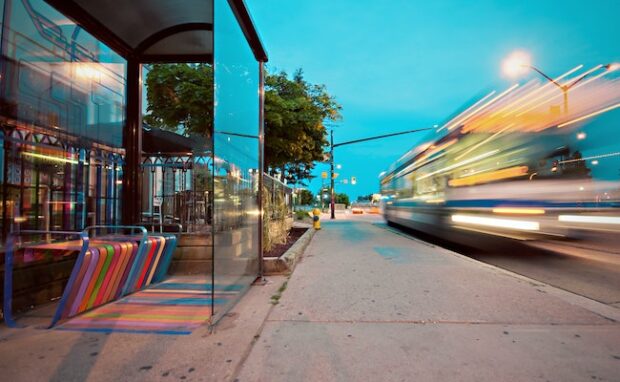AI city planning to revolutionize urban spaces
Tsinghua University researchers discovered that AI city planning is significantly more efficient and effective than manmade. Yu Zheng and his team tested whether a machine learning model could form a space that adheres to the 15-minute city concept. As a result, the AI program drafted in seconds a plan that takes human planners between 50 to 100 minutes.
Our public spaces determine our individual ways of life, such as our access to healthcare and groceries. However, designing cities to provide a high-quality community is becoming more difficult as our population increases. Fortunately, artificial intelligence may expedite and improve city planning to provide better living spaces in the future.
This article will discuss Tsinghua University’s latest AI city planning study. Then, I will explain the other benefits of using artificial intelligence for shaping living spaces.
How did an AI plan a city?
Tsinghua University researchers wanted new solutions for improving cities that are becoming more congested and less green. Consequently, they created an AI program that can take over the most tedious and computational aspects of urban planning. Here’s how the system worked:
- Yu Zheng and his colleagues tasked their model with designing urban spaces that are a few square kilometers wide or about 3×3 blocks.
- They trained the AI system using numerous neural networks after two days of training.
- Next, the AI city planner searched for the ideal road layouts and land uses that fit the local planning policies and the 15-minute city concept.
- The latter involves making it easy to walk towards essential city spades like offices and supermarkets.
Yu Zheng and his colleagues found their model only needed seconds to perform tasks that took humans 50 to 100 minutes. Also, their AI-assisted workflow increased access to basic services by 12% and parks by 5%.
However, they admitted their program has faults. For example, the model could plan large urban areas but can’t design an entire city. Drafting the latter with 4×4 blocks requires twice as many planning decisions for 3×3.
You may also like: Air quality is a problem for cities worldwide
Yet, automating some planning steps could save significant amounts of time. Zheng claimed automating time-consuming tasks could enable planners to focus on more human-centric tasks.
ScienceAlert says they could focus on public engagement, aesthetics, and other challenging tasks. That is why the team wants its AI system to serve as an assistant to urban planners.
The program could generate concept designs and optimize them with algorithms. Then, human experts could review, adjust, and evaluate them based on community feedback. The website said the last step is integral to proper design.
How can artificial intelligence improve smart cities?
Chris Chiancone, Chief Information Officer of Carrollton City, explained how AI tools could change how we plan smart cities. For example, it could simulate several versions of a city to fit several requirements.
Your AI city planner could make a version that prioritizes nature parks or improves accessibility to public amenities like schools and hospitals. Also, the program can predict how a city will grow and transform over time.
For instance, it will show areas that will have increased populations and additional buildings. As a result, these predictions can guide city planners in making more informed decisions regarding infrastructure design and resource allocation.
You may also like: Japan announces Dogen floating city
Artificial intelligence could also help improve existing cities. For example, an AI tool could check various data to suggest where to construct new roads, extend public transportation, or determine locations for new public spaces.
Chiancone believes generative AI, the artificial intelligence behind ChatGPT, could detect correlations and patterns that human planners can miss. For example, it could determine a connection between the location of public parks and the health of nearby residents.
Believe it or not, we already have real-world examples of AI city planning. For example, Amsterdam and Singapore have used generative AI to simulate new urban scenarios.
Conclusion
Tsinghua University researchers tested whether an AI program could plan cities. They found that this technology has potential but requires further research and development.
Considering the rapid advance of artificial intelligence, AI city planning may become a global standard sooner than you think. Hence, future urban areas may become more livable than existing ones.
Learn more about this Tsinghua University study at the Nature Computational Science website. Also, check out more digital tips and trends at Inquirer Tech.

